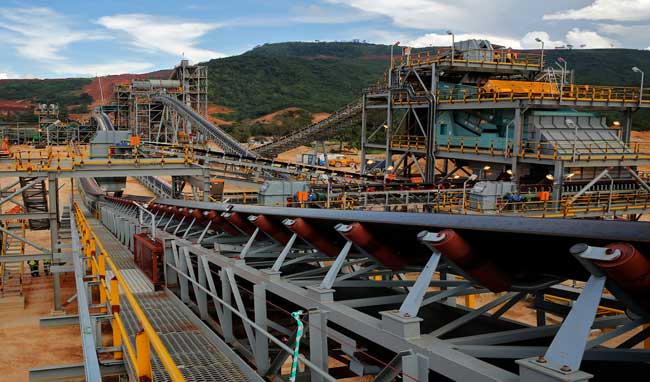African Minerals (LSE: AMI) has accomplished a lot in four years, moving its flagship Tonkolili iron ore project in Sierra Leone from exploration to production, and achieving its target export run rate of 20 million tonnes per year during the second quarter of 2013.
In September the company added another feather to its cap — signing a strategic and binding memorandum of understanding (MOU) with Tianjin Materials and Equipment Group Corp. (aka Tewoo). Under the MOU, Tewoo will pay African Minerals US$1 billion for 10% of the project and 10% of the company.
Tewoo, which African Minerals describes as the largest iron-ore trader in China, also gets a 20-year off-take agreement, and the companies have agreed to form a joint venture to bring iron ore to a blending facility that will be built in the Chinese port city of Tianjin.
In 2012 Tewoo posted annual turnover of US$32 billion. It employs 5,000 people, and in 2011 traded 33 million tonnes of iron ore.
Frank Timis, African Minerals’ executive chairman and the founder of Gabriel Resources, said the transaction could give the company another billion dollars of funds at the corporate level, which would strengthen its balance sheet and provide “flexibility in financing options for the company’s future development.”
Nearly all of Tonkolili’s production is committed for the next two decades, Timis added, with other strategic partnerships including Shandong Iron & Steel Group (SISG) — one of the world’s largest steel companies — and China Railway Materials Commercial Corp. (CRM).
“For a small miner to start up and enjoy what is an un-geared balance sheet is rare,” writes BMO Capital Markets analyst Tony Robson.
In March 2012, SISG invested US$1.5 billion for a 25% stake in the Tonkolili mine, rail, port and power subsidiaries, and an off-take agreement over the mine’s life. Under the arrangement SISG will buy 2 million tonnes per year of phase-one production, increasing to 10 million tonnes per year, with discounts ranging from 0% to 15%. SISG also has the right to elect on a yearly basis to receive 25% of standard production at benchmark prices, and receive iron ore in settlement of any declared dividends from the project.
CRM also took a 12.5% stake in the company valued at $247 million in June 2010. The investment includes an off-take agreement for 10 million tonnes per year of magnetite at benchmark prices for at least 20 years.
Sierra Leone approved the Tonkolili mining lease in August 2010. The resource extends over a strike length of 30 km and consists of direct-shipping ore and a saprolite resource that overlies a large magnetite orebody.
Of Tonkolili’s 12.8-billion-tonne, Joint Ore Reserves Comittee-compliant resource, direct shipping ore makes up 126.4 million tonnes grading more than 58%; saprolite makes up 1.1 billion tonnes exceeding 64% iron in hematite concentrate; and magnetite makes up 11.6 billion tonnes at over 70% iron.
The mine’s first phase started producing in November 2011 at a cost of US$2.2 billion. African Minerals says cash costs in phase one could be US$30 per tonne by 2014. The company forecasts that capex will be US$2 billion to fully build out to 35 million tonnes of saprolite concentrate.
As the mine enters phase two, BMO’s Robson forecasts Tonkolili’s output will ramp up to 14 million tonnes this year, 18 million tonnes in 2014, 20 million tonnes in 2015 and 25 million tonnes in 2016.
The London-based analyst calculates that after the deal with Tewoo closes, African Minerals will have 368 million shares outstanding. He says that Timis will be the largest shareholder with 11.5%. M&G will own 11.5%, and BlackRock, 11.3%.
Now that the foundation for the direct-shipping ore operation is intact, work is accelerating to transition to saprolite ore and reach the annual 35-million-tonne operation, which the company describes as a brownfield project that will use the existing port site.
The company expects to produce 15–18 million tonnes in 2013, 13–15 million tonnes of which will be exported.


Be the first to comment on "Timis’ African Minerals moves fast in Sierra Leone"